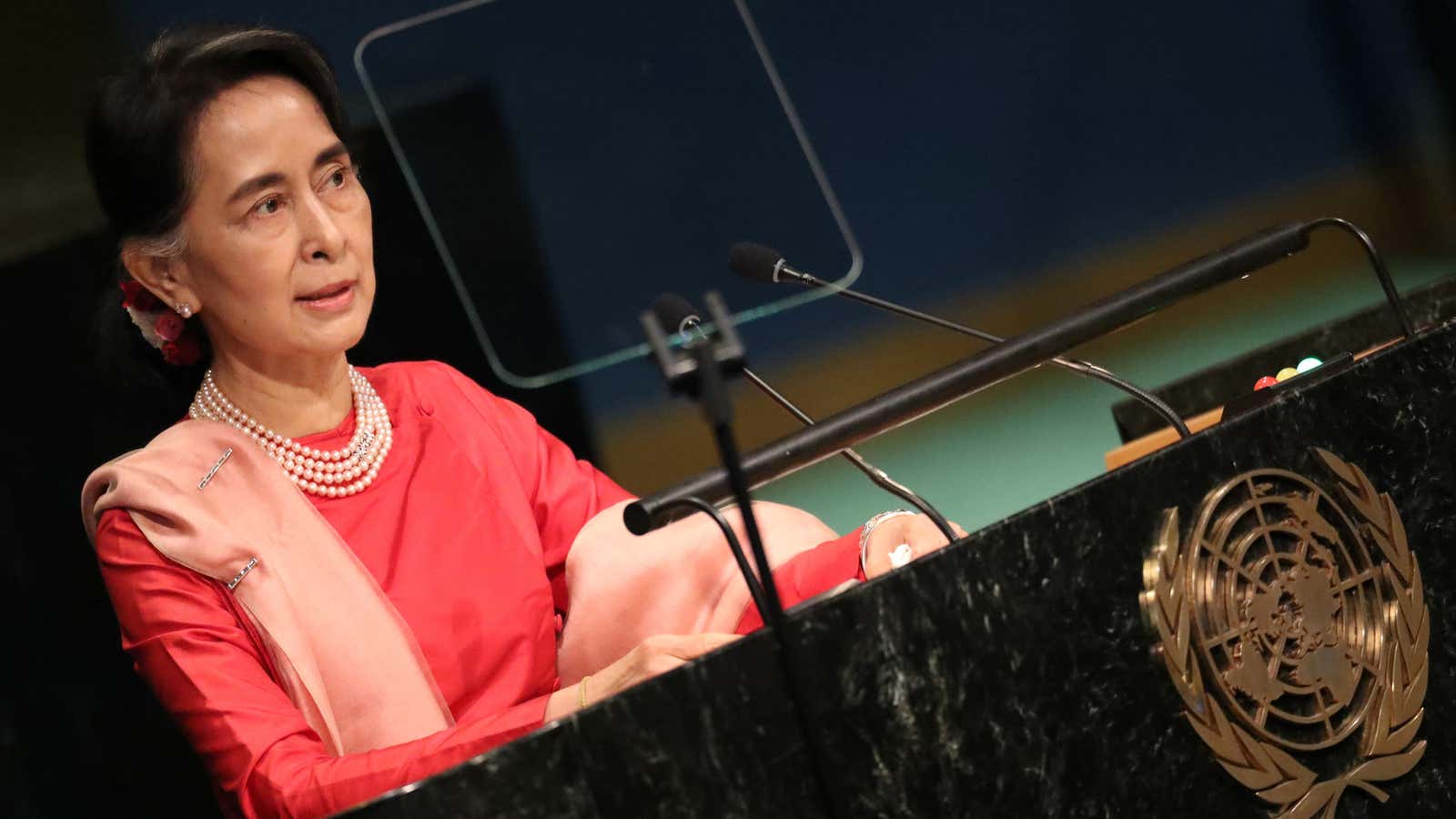Aung San Suu Kyi has finally spoken, and left the world disappointed.
The Rohingya Muslims of Myanmar’s Rakhine State have been subject to what the United Nations (UN) head of human rights called “a textbook example of genocide.” And many had, till now, exhorted Suu Kyi to speak up against the state-sanctioned horrors.
Though the Nobel Laureate “broke her silence” on Sept. 19, her speech all but denied the gravity of the situation and the Myanmar government’s hand in it. So, for many now, Suu Kyi is no longer the humanitarian who relentlessly fought for democracy in her country and spent 15 years under house arrest.
But why’s the world surprised?
To begin with, contrary to perceptions, the icon was never really silent about the Rohingya. It is just that she never said what the world wanted to hear. And that may have something to do with her being a woman. For we like to keep women in boxes, and the one we reserved for her was that of a defender of human rights.
Let’s first see what she did say about the most persecuted minority of her country—perhaps even the world.
For starters, Suu Kyi refused to even use the term Rohingya, effectively denying them the status of an ethnic group.
“I don’t think there is ethnic cleansing going on. I think ethnic cleansing is too strong an expression to use for what is happening,” she blatantly told the BBC earlier this year. Eerily, she borrowed Donald Trump’s rhetoric to attack the press, claiming the sordid news pouring out of Rakhine State was fake and “a huge iceberg of misinformation.” She even claimed that such reports were “promoting the interests of terrorists.”
Besides, Suu Kyi has hardly been “inactive” either. Her government, in fact, refused visas to UN envoys investigating the crisis. She canceled her trip to the UN General Assembly in New York, during which the world would debate the issue, and mull sanctions on Myanmar.
So Suu Kyi’s been rather unequivocal: She does not stand with the Rohingya or against their persecution. The world has been deaf to her words. She was vocal, but accused of silence; she’s an agent of the government, yet accused of inaction.
Her latest speech simply follows this line. Her government wants to “find out” what is happening, she said. Even while refusing access to UN observers, she insisted that Myanmar “does not fear international scrutiny.” The leader even falsely stated that everyone in Rakhine State had access to basic services and education.
In short, Suu Kyi was never a quiet bystander, though the world wishfully saw her as such.
And all that’s too often what we do with women: We ignore them, unless they say what we would like them to. It was easy to hear Suu Kyi, to acknowledge, celebrate, and award the power of her convictions and the importance of her fight when she was speaking up against oppression. Now we don’t really know what to do when she’s using her political agency in a way that we disagree with.
She had the power and international standing to take a position on the Rohingya crisis. And she did. Long ago.
The world just didn’t take the woman seriously.
We welcome your comments at ideas.india@qz.com.
